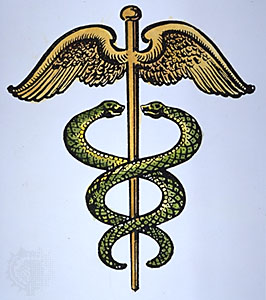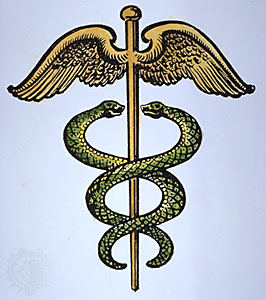
So you think you know what medical malpractice is? Well, last week a panel of appellate judges in New York split on the subject in Friedman v. New York Hospital-Cornell Medical Center.
The following scenario presented itself on a motion for summary judgment:
A patient died of blunt trauma to the right leg after her leg struck a bed rail while aides were preparing her for dinner and adjusting her bedding. The victim was bedridden and had fragile skin that was prone to rupture as a result of medications she took for her numerous ailments.
The majority concluded that this was an action in simple negligence because the alleged negligent act may be readily determined by the trier of fact based on common knowledge, and therefore, no special expertise was needed. Thus, on a motion for summary judgment, it was readily apparent that the court should not summarily dismiss the case as issues of fact existed for a jury to determine, and that an affidavit from an expert was not needed for such a purpose.
On the other hand, Justice James Catterson wrote in a long, analytical dissent that this was a malpractice case, because the harm to the patient — the rupture of her right leg, and a massive loss of blood resulting in death after her leg was allegedly knocked into a bed rail by an aide — was not foreseeable by the average, reasonably prudent person. Malpractice, from this perspective, is not just about diagnosis and treatment. The dissent pointed out that the Court of Appeals had not yet addressed what categories of health-related activity constitute medical treatment or bear a substantial relationship to the rendition of such treatment.
Catterson broke the arguments down like this, in determining that this was a malpractice case:
Silvercrest’s failure to realize or assess that her leg would rupture from being bruised on a bed rail involves diagnosis of her condition at the time, and therefore requires the special knowledge and skills of a health practitioner. The plaintiff, on the other hand, argues that “shifting a patient in bed does not require specialized medical knowledge.” But the plaintiff then further argues: Silvercrest “[d]ue to its knowledge of her physical condition, […] owed decedent a higher duty of care in its treatment of her. The breach of this duty resulted in foreseeable injury and ultimately, her demise.”
The dividing line between malpractice and simple negligence is sometimes easy to see, but sometimes not. And the place where it is difficult usually occurs in the hospital setting, often with falls that occur. Justice Catterson notes in his long dissent that falls from hospital beds due to a lack of bed rails were found to be negligence while another fall from an exam table was found to be malpractice. He also notes that the decisions seem, sometimes, to be arbitrary.
Is the issue an important one? You bet. The statute of limitations for medical malpractice cases was changed from the 3 years to 2 1/2 years as a result of pressure from the medical lobby. So if the case is brought after 2 1/2 years, and before 3 years, you can bet that the defense will claim the action is really one for medical malpractice and therefore time-barred.
The question, ultimately, may be one for a jury and not a court. I tried one case many moons back where a patient with a ruptured aneurysm in the brain fell off the angiogram table. On to her head. There were two issues for the jury regarding how she was secured to the table with tape:
1. Was it a departure from medical practice to use tape to secure this patient? (The malpractice question.)
2. Was the technician negligent in the manner in which the tape was used ? (General negligence.)
The jury answered the first question no (it was not malpractice) but the second question yes (it was negligence).
The lesson from this dispute? If you aren’t sure whether the case is malpractice or simple negligence, plead it both ways in the Complaint. And don’t wait until the 2 1/2 year statute of limitations on medical malpractice has expired. For the answer may well depend not only on what the Court of Appeals does one day on this issue to further define the concepts, but on the testimony of the defendants themselves as to who, when and where a particular action was ordered and the way that order was carried out (if at all). This is often beyond the knowledge of the plaintiff when a suit is started.



